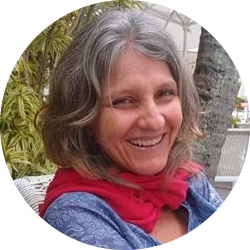
We asked Bia Galli, Ipas senior policy and advocacy advisor, for a look into how Ipas works alongside partners to advocate for reproductive justice in global human rights discussions—and how that can spur governments to take action.
Can you share an example of how Ipas works to ensure governments protect and advance sexual and reproductive rights?
“We work with partners to advocate within the United Nations’ (UN) human rights bodies for inclusion of abortion rights in international agreements and programs of action. We always strive for abortion access and rights to be included in the conversation. For example, we recently collaborated with Center for Reproductive Rights, The International Federation of Gynecology and Obstetrics, The International Lesbian, Gay, Bisexual, Trans and Intersex Association and others to organize a side event for the UN Committee on the Elimination of Racial Discrimination (CERD) called Dialogue on intersectional discrimination and the right to health.”
Why did this side event matter?
“It ensured that abortion access was included in the discussion of intersectional discrimination against marginalized groups of persons and individuals in different health-care contexts. The CERD Committee will be considering how best to advance norms and standards on intersectional discrimination in their forthcoming General Recommendation No. 37 (GR37) on the right to health. General recommendations like this one from the CERD Committee set international human rights standards and guide states in the development and implementation of national laws and policies. GR37 can be used by civil society organizations to hold states accountable for racial discrimination in reproductive health services, such as when women and girls are denied life-saving care because of their ethnicity or migration status.”
How does this connect to the rights of people who can get pregnant?
“Lack of access to abortion can be caused by structural racism in the public health system—affecting Black women, girls and pregnant people in countries like Brazil and the United States. This lack of abortion access is an example of intersectional discrimination—when a person experiences a disadvantage due to a combination of factors such as race, gender, sexuality, income, citizenship, employment status, and presence of a health condition or disability.
Policymakers and health providers need to consider the multiple social realities and needs of individuals seeking sexual and reproductive health care. If they understand how power structures and wider social, political and economic processes shape access to health care, they’ll be able to make decisions that help break down barriers to reproductive health services like abortion.”

